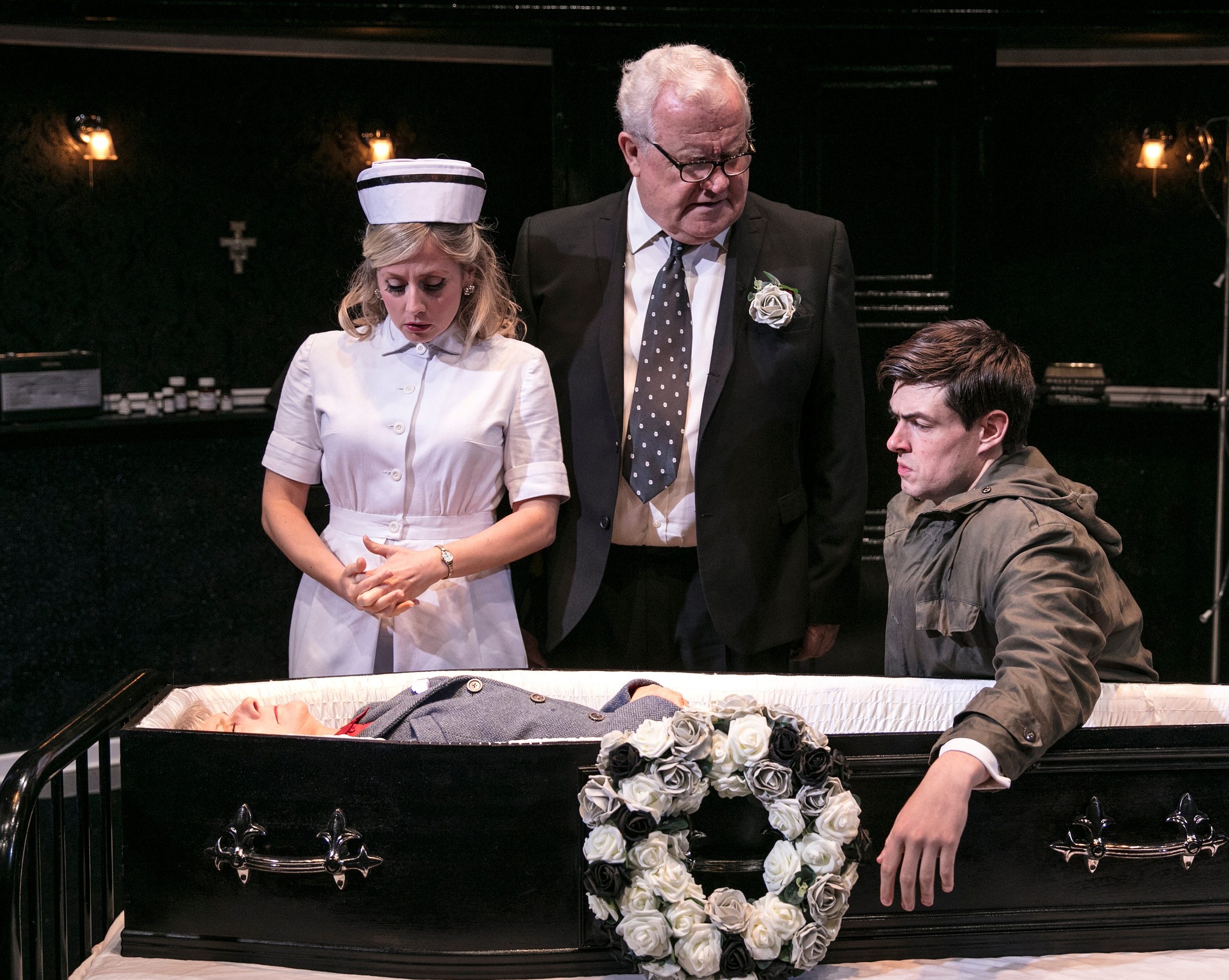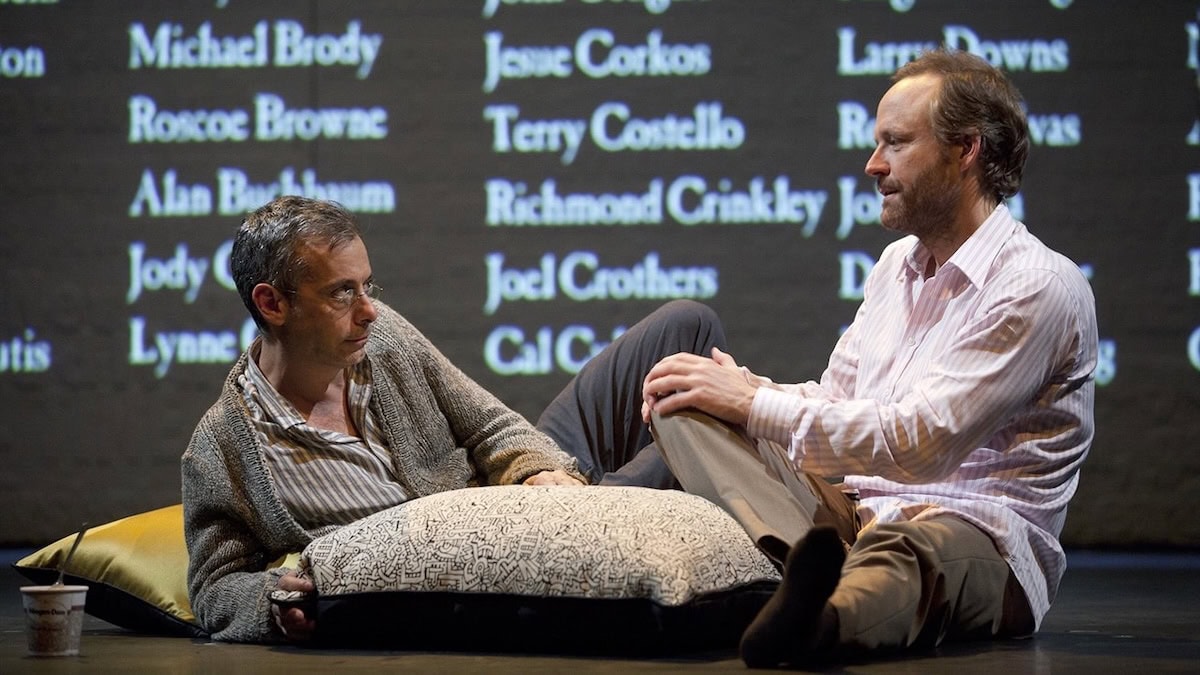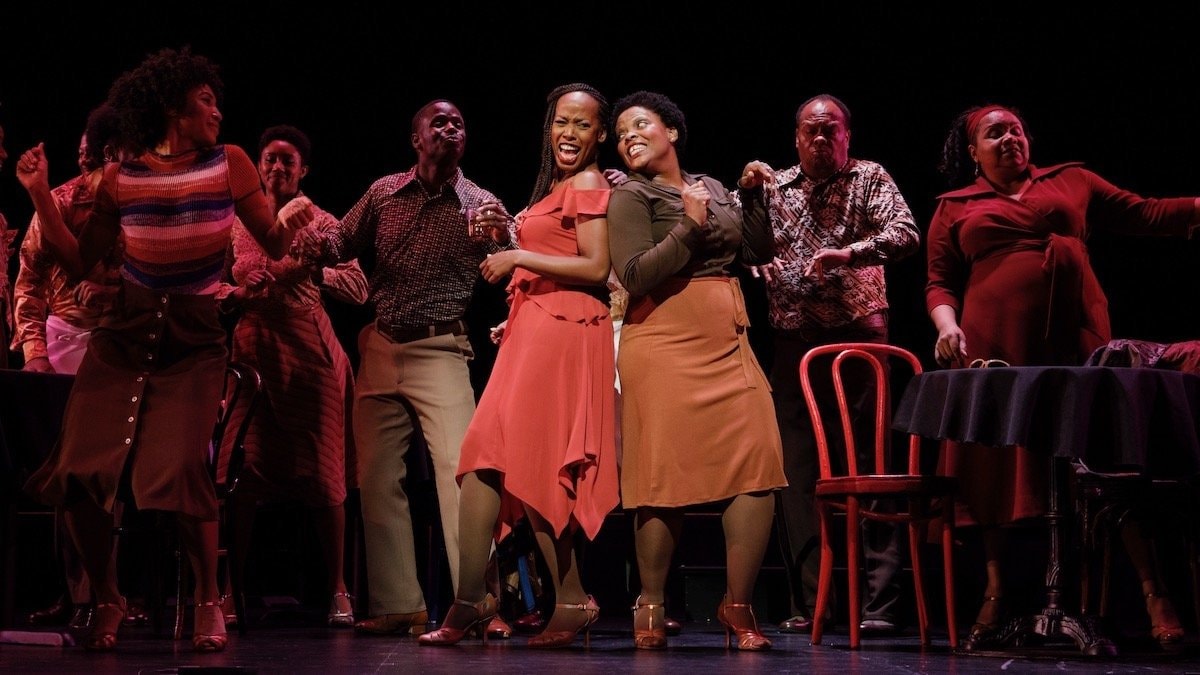
The past few years have illuminated a din of hot-button political and social issues and we, as theatre producers and creators, are clamoring for ways to shed light on them. We want our productions to speak to these issues, to contribute to the conversations happening, and perhaps, to provide some new perspective to our audiences.
But, a potential barrier to entry is that, outwardly, political theatre doesn’t always break records at the box office. We’ve got to keep the lights on and often rely on commercial, well-known works to sell tickets.
So where do we turn? Perhaps now is a good moment to look again at Loot by Joe Orton. Like most of Orton’s work, Loot is steeped in the traditions of classic British farce, guaranteeing wide audience appeal. But thematically, it goes deeper. Relentlessly funny and of “revival-age,” Loot might also be able to speak to the social issues of today.
Loot received major premieres in 1965 at The Arts Theatre in London and in 1968 at the Biltmore in New York and it has lived on in hundreds of productions since its premiere. Orton’s entire body of work is studied in colleges and universities all over the world. Now, more than 50 years later, the show is a perfect fit for that “contemporary classic” or “revival” slot in any season because the author’s reputation and the title’s notoriety precede any new production in development.
If you’re not familiar with the comedic happenings of the play, Loot begins when a bank is robbed right next door to a funeral parlor. A funeral parlor where Hal’s mother is being prepared for her memorial service. Hal also happens to be one of the bank robbers. With Dennis the other bank robber, and his mother’s nurse Fay, he concocts a plan to hide the stolen cash in his mother’s coffin, moving her corpse into a cabinet.
When an inspector, Truscott, comes looking around, keeping secrets is next to impossible. The foundation for a truly hilarious sequence of events is set when the dead body and the stolen money exchange places over and over as Hal and Dennis try to cover their tracks to avoid getting caught. Every beat leads the audience closer and closer to hilarious absurdity.
Between the laughter, Inspector Truscott’s abusive actions take this story to yet another level. Truscott enters the scene posing as an inspector from the Water Board but he questions and pries into the family’s affairs like a detective on the hunt. Almost without resistance or question, Truscott is given access to look around. Later, when Hal gives a sarcastic response during a line of questioning, Truscott begins to physically and verbally abuse him. In this moment, Truscott’s actions mirror horrific examples of police brutality and Loot takes on value as political commentary.
Orton’s dramatization of this unendurably frustrating issue is masterful. It leaves us questioning our ability to confront authority as well as the origin of authority in the first place.
Loot is funny enough to recommend as a commercial comedy and is socially considerate enough to recommend as political theatre for today’s American producer. It is well-known, hilarious, full of depth, and a bit of a unicorn in the way that it can satisfy these different needs in our season programming.
To purchase a copy of Loot click here, and to learn more about licensing a production, click here.

The Truth Behind… The Normal Heart

Musical Revues

